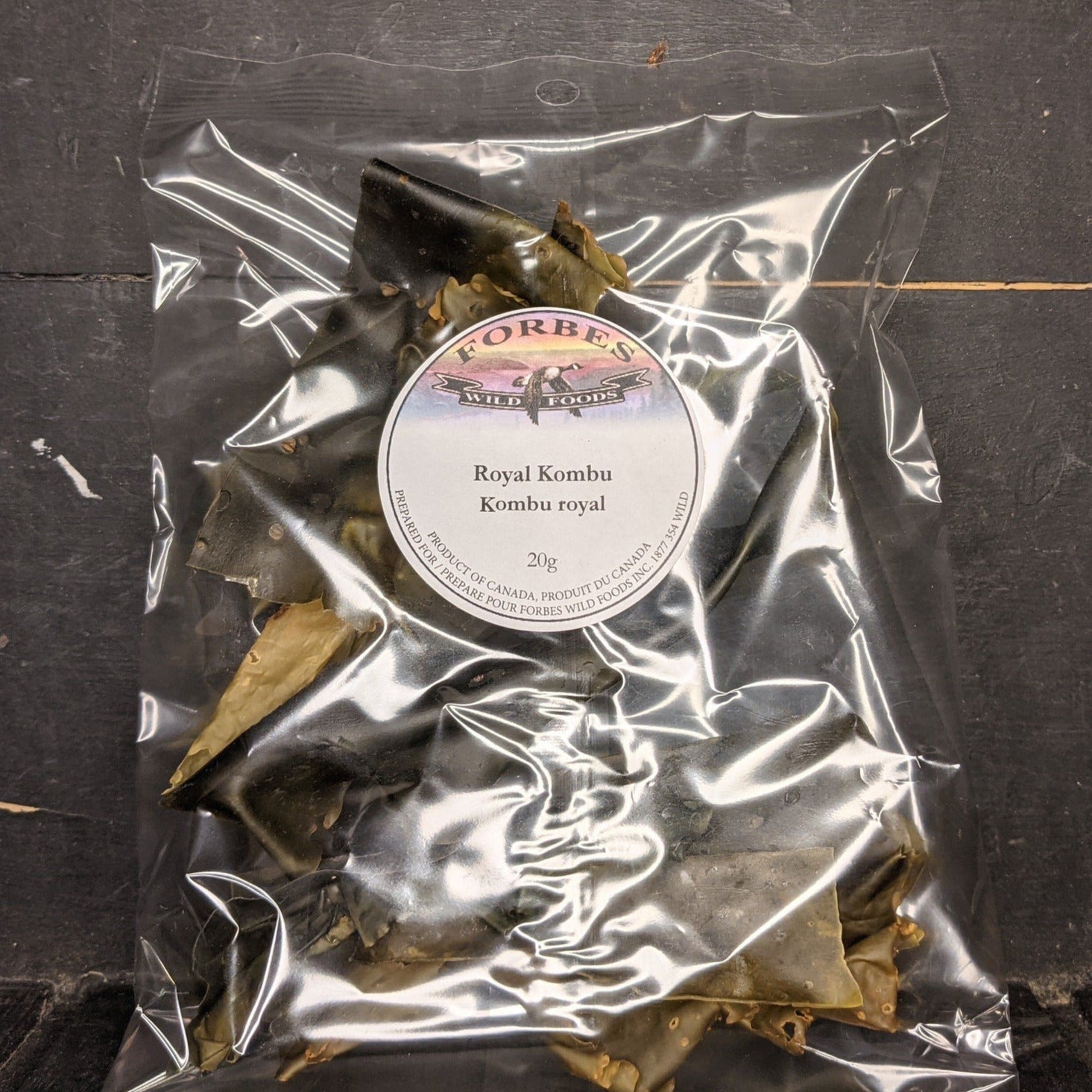Royal Kombu, or Laminaria Japonica, is a type of brown algae, within the category of kelp. As its Latin name suggests, this seaweed is associated with Japanese food culture. However, its habitat is not limited to one ocean or region. Forbes Royal Kombu is sustainably harvested and naturally dried in Nova Scotia. Its long, brownish-green leaf-like blades have a mild aroma, and a flavour that is both briny and sweetly fruity, giving rise to another of its names: sugar kelp. You may notice a white powdery layer on the leaves. This is not mold, but rather a savoury amino acid residue.
Royal Kombu is the backbone of dashi, the broth that is fundamental to Japanese cuisine. To make dashi, put an ounce of Royal Kombu in 4 cups of cool water and bring up the heat until the water just begins to boil. Remove the seaweed immediately and reserve it. Take the pot off the heat. Add one ounce of bonito flakes. Return to the burner and allow liquid to boil for a few seconds before straining out the flakes. For vegan dashi, omit bonito flakes and pour slightly cooled kombu liquid over an ounce of dried matsutake mushrooms. Leave mushrooms in the broth, or remove for other recipes. Kombu that has been used to make dashi lasts for several days refrigerated. Shred it to add to salads or soups, or wrap it around fish filets before steaming.
Like all sea vegetables, Royal Kombu differs nutritionally from plants growing on land. Sea vegetables have a higher content of minerals such as calcium, potassium and iodine. They are also rich in protein, amino acids, iron, vitamins and soluble and insoluble fiber. Royal Kombu in particular is high in iodine, calcium and iron.
Forbes Wild Foods is a Canadian company that proudly supplies wild, hand-picked foods to restaurants; farmers markets; hotels; gift, food, and health stores; and to individual customers via our online store. All of our foods are sustainably harvested from the Canadian wilderness by trained, knowledgeable pickers. Our suppliers practice progressive harvesting methods -- ones that are both sustainable for its neighbouring plant species and surrounding ecosystem; and for the pickers themselves, whose livelihood is supported by a thriving source of wild foods.
Our specialized pickers (consisting of Indigenous people, women, youth, retirees, farmers, and professional foragers) are usually residents of rural or remote communities who respect the lands that support them. Only those wild foods that grow in great abundance and whose survival is not in danger are considered for harvest. Forbes Wild Foods also works with regional and northern wild food producers to help propagate rare wild food plants by reintroducing them to lands that need remedial attention, such as overgrazed woodlots and pastures.

